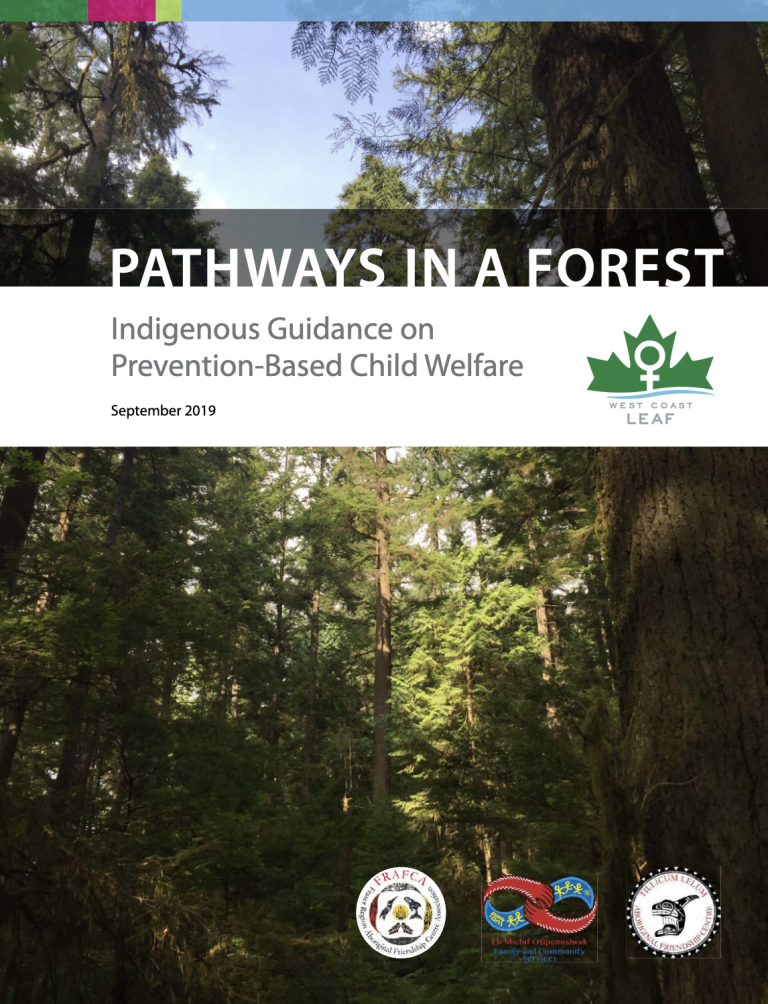9 search results
for
Non-profits and community organizations
A LACK OF ACCOUNTABILITY AROUND A SOCIAL WORKER’S OBLIGATION TO IDENTIFY LESS DISRUPTIVE MEASURES
Recommendation 6: There should also be a requirement that the Ministry respond to alternative proposals by parents, Nations, and community-based organizations that support the parent. The Yellowhead Institute recommends that the legislation include “affidavit evidence from the Indigenous group that there is no available placement.-
Category and theme:
Audience:
Groups affected:
Location of recommendation:
Recommendations for legislative reform
Recommendation 9: MCFD should review the legislation to assess how the legislation could support a more accountable and robust legal framework for prevention-based supports including by:- Adding a comprehensive list of functions for MCFD at the beginning of the legislation which includes:
- working with community and social services to alleviate and remedy the socio-economic conditions that place families at risk;
- developing and providing services and supports before and after intervention;
- proactively identifying groups of children the recognition and realization of whose rights may require MCFD to undertake special measures and develop special programming
- Replace the reference of prevention services in section 2(c) of the CFCSA, with a legislative provision that places a binding and measurable obligation on the Ministry to provide supports to keep families together who are at risk of having their children apprehended. The provision should place a positive obligation on the Ministry to take active efforts to provide remedial services and rehabilitative programs designed to prevent the breakup of the child’s family. The courts must then be satisfied that these active efforts proved unsuccessful in keeping the family together.
- Expand the list of supports under section 5 to include:
- improving the family’s financial situation;
- improving the family’s housing situation;
- improving parenting skills;
- improving child-care and child-rearing capabilities;
- improving homemaking skills;
- drug or alcohol treatment and rehabilitation;
- providing child care;
- mediation of disputes;
- self-help and empowerment of parents whose children have been, are or may be in need of protective services; and,
- transition supports for families who have just had a child apprehended or returned.
-
Category and theme:
- Ableism ,
- Accessibility ,
- Accessible services and technology ,
- Classism ,
- Courts ,
- Decolonization and Indigenous rights ,
- Disability and parenting ,
- Discrimination and hate ,
- Economic inequality ,
- Education and employment ,
- Health ,
- Health, wellness and services ,
- Housing and homelessness ,
- Human rights system ,
- Income insecurity and benefits ,
- Indigenous children and youth in care ,
- Indigenous issues in policing and justice ,
- Indigenous rights and self-governance ,
- International human rights ,
- Mental health and detention ,
- Policing and the criminal justice system ,
- Poverty ,
- Poverty and economic inequality ,
- Public services ,
- Racism ,
- Substance use
Audience:
Groups affected:
Location of recommendation:
Discrepancies in the delivery of child welfare services
INCONSISTENCIES IN SOCIAL WORKER PRACTICE STANDARDS
Recommendation 11: MCFD should develop a mechanism for holding regional offices accountable to implement the necessary changes identified through quality assessments-
Category and theme:
Audience:
Groups affected:
Location of recommendation:
Discrepancies in the delivery of child welfare services
Subtitle:SYSTEMIC RACISM
Recommendation 12: Project participants also expressed the need for training to cover the following topics: genderbased violence; Indigenous rights, identities, and cultures; the role of ongoing colonialism on intergenerational trauma; the potential for communities and families to provide more appropriate solutions to family healing; and the importance of culture and connection to the child’s well-being.-
Category and theme:
Audience:
Groups affected:
Location of recommendation:
Discrepancies in the delivery of child welfare services
Subtitle:A TOP-DOWN APPROACH
Recommendation 13: MCFD must review its policies and practices to increase the use of ADR processes, including changing the definition of family in ADR processes to recognize and honour Indigenous conceptions of family.-
Category and theme:
Audience:
Groups affected:
Location of recommendation:
Substance use: Current MCFD approaches and recommendations for change
Recommendation 14: make specialized substance use consultants available to support families to develop timely safety planning including engaging and enabling the support of family members.-
Category and theme:
Audience:
Groups affected:
Location of recommendation:
Improving financial supports for Indigenous families
A UNIVERSAL BENEFIT FOR ALL CHILDREN LIVING IN EXTENDED FAMILY-BASED CARE
Recommendation 15: Allow for community-based organizations that work closely with the family in the provision of family support to provide a recommendation letter or report setting out the family’s needs.-
Category and theme:
Audience:
Groups affected:
Location of recommendation:
A pathway forward
THE RIGHT TO SELF-DETERMINATION AND THE NEED FOR MORE SIGNIFICANT GOVERNMENT ACTION
Recommendation 17: Furthermore, the report calls on the federal government to ensure that there is full federal funding for Nations that assume jurisdiction over child welfare-
Category and theme:
Audience:
Groups affected:
Location of recommendation:
A pathway forward
JURISDICTIONAL SHORTFALLS: THE LIMITS OF MODERN TREATIES AND BILL C-92
Recommendation 18: BC government and MCFD to ensure that children are provided with services while the family navigates the process and develop a consistent mechanism for repaying costs for services provided in the interim-
Category and theme:
Audience:
Groups affected:
Location of recommendation:
